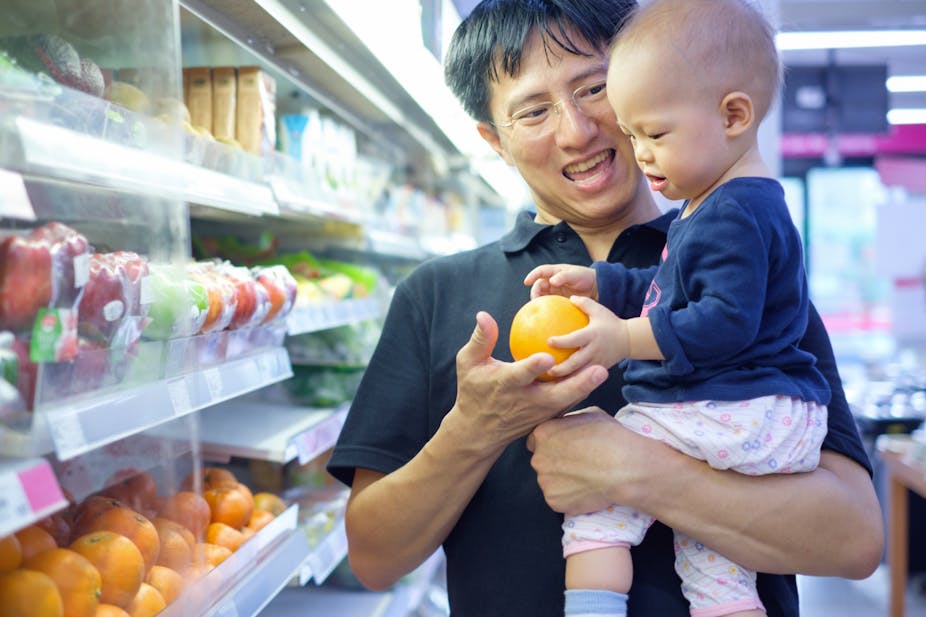Caregiving is a central part of life. It includes everything from preparing lunch for our child, to looking after our sick spouse or providing care for an elderly family member. The pandemic has only increased these demands on many people.
Many of us had to juggle work and childcare responsibilities or took care of a sick loved one, and the care responsibilities many of us have taken on recently are likely to outlast the pandemic.
Caregiving relationships involved frequently making choices on behalf of others: what they eat, what they do, how and when they rest. Yet while we know a lot about individual consumption habits in society, we know surprisingly little about consumption within caregiving relationships.
My fellow researchers and I recently asked ourselves if making choices for a dependable other, such as a child, may not only have consequences for them, but also for the caregiver.
Healthy choices
Taking good care of others frequently involves making choices that help foster their long-term wellbeing. We may choose to read educational books to our children or watch documentaries with them to spark their curiosity – hoping that one day they will pursue an interesting and fulfilling a career.
We may also pay close attention to what the people we care for are eating, to keep them healthy. While it is clear that such choices first and foremost concern the health and happiness of the person we are caring for, we hypothesised that they may also affect the caregiver’s personal wellbeing.
In several field studies conducted in Australia and the Netherlands, we found that making a virtuous, healthy consumption choice for a person you are caring for can have the perverse result of increasing subsequent self-indulgence among caregivers.
In one of our studies, we asked parents at a kindergarten to make a snack choice for their child. They could choose between healthy grapes or indulgent sugary gummy worms. When making such a choice, the caregiving parent has to decide between what’s good for the child’s health (grapes) and what the child probably prefers (gummy worms).
While the number of parents who chose grapes and the number of parents who chose the gummy worms was quite similar, 47% and 53% respectively, we observed fundamental differences in the parents’ subsequent consumption patterns for themselves. When we asked parents to participate in a chocolate tasting immediately after making the choice for their child, parents who had chosen grapes for their child subsequently consumed significantly more grams of chocolate themselves than parents who initially had chosen gummy worms for their child.
We found similar effects in another study of dog-owners: 76% of the dog owners who had chosen a health-promoting dog treat subsequently chose a chocolate bar over a banana when making a snack choice for themselves. By contrast, only 45% of dog owners who had initially chosen the indulgent unhealthy snack for their dog went for the chocolate bar.

This pattern of consumption choices does not only hold for food products. We found similar effects for other product categories that involve indulgent entertaining consumption options such as entertainment magazines and more “virtuous” educational options such as science magazines or financial newspapers. Parents who had initially made a virtuous choice for their teenage child – such as a cookbook with healthy recipes – were subsequently more likely to prefer entertainment magazines over educational ones for their personal reading.
Though parents decide on behalf of their children far more often than the other way around, children do also make choices for their parents from time to time. They may for instance chose to give them a restaurant gift voucher for their birthday or Mother’s Day. In one study with Dutch students, we found that students who chose a restaurant voucher for a restaurant offering healthy foods for their parent, were subsequently also more likely to refrain from self-indulgence themselves (they consumed less chocolate in a subsequent taste test).
What does this mean for you?
Our research suggests that providing good care for others may have detrimental long-term health consequences for the caregiver. Many of us will know from experience that taking care of others often means we neglect ourselves.
To avoid such consequences, we should remind caregivers that, while taking good care of others is laudable, they shouldn’t forget to take good care of themselves, too. One way to remind caregivers to take care of themselves might be to add reminders to products typically purchased for care-receiving others. For instance, one could add healthy meal recipes for parents on food packaging of baby food.
At the same time, our research shows that making healthy choices for caregivers is beneficial for care-receivers who are subsequently more likely to match such virtuous choices in their personal consumption habits. Encouraging your children to choose a healthy meal for you when you are eating out at a restaurant may inspire them to make a similar healthy choice for themselves.

